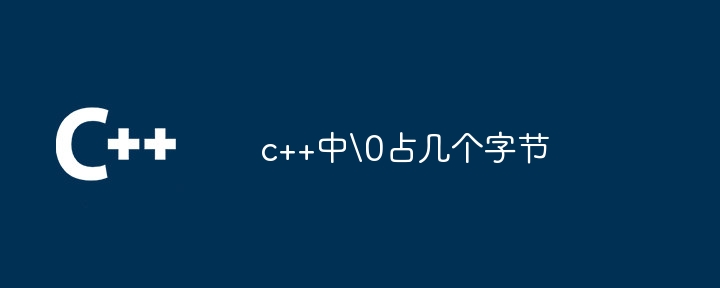
\0 in C usually occupies 1 byte because it is the null character that indicates the end of the string. In some cases it may take up multiple bytes: - Unicode strings in Windows: 2 bytes - UTF-8 encoded strings: 1 to 4 bytes. \0 is crucial for string operations, and knowing its size in bytes is crucial for memory management and efficiency.
 occupy in c++" >
occupy in c++" >
#How many bytes does \0 in C occupy?
\0 in C is a null character, which indicates the end of the string. It occupies one byte in most computer systems.
Why does \0 occupy one byte?
In early computer systems, strings were usually represented using fixed-length arrays. In order to determine the length of a string, a special character is required to indicate the end of the string. The ASCII code table designates 0 (decimal) as the null character, which is assigned a byte in most systems.
Other lengths of \0
Although \0 usually occupies one byte, in some cases it may occupy multiple bytes:
Importance
\0 is a very important character in C programming. It is used to determine the length of a string and is critical for string processing operations. Understanding the byte size of \0 is critical to understanding memory management and efficiency of string operations.
The above is the detailed content of How many bytes does \0 occupy in c++. For more information, please follow other related articles on the PHP Chinese website!
 What are the differences between c++ and c language
What are the differences between c++ and c language
 Recommended learning order for c++ and python
Recommended learning order for c++ and python
 Cost-effectiveness analysis of learning python and c++
Cost-effectiveness analysis of learning python and c++
 Is c language the same as c++?
Is c language the same as c++?
 Which is better to learn first, c language or c++?
Which is better to learn first, c language or c++?
 The difference and connection between c language and c++
The difference and connection between c language and c++
 C++ software Chinese change tutorial
C++ software Chinese change tutorial
 Cost-effectiveness analysis of learning python, java and c++
Cost-effectiveness analysis of learning python, java and c++




